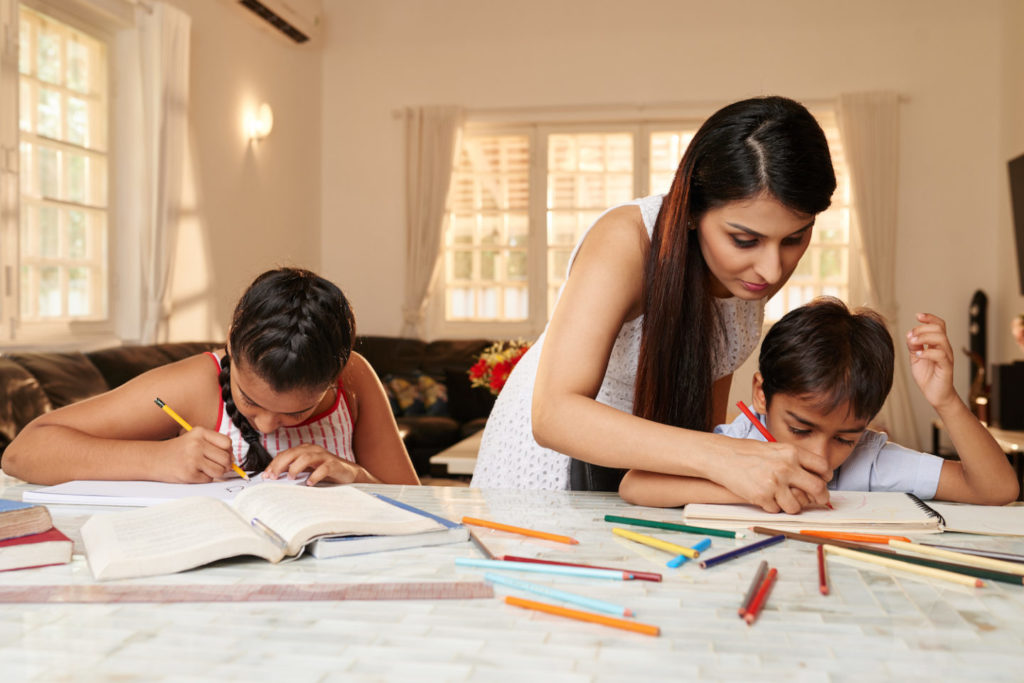Failure of public schools is a common reason homeschooling is growing among all demographics
Homeschooling is attracting large numbers of families from all demographics and backgrounds.
A fascinating article by The Hechinger Report explores this trend in more detail, by following the…

Homeschooling is attracting large numbers of families from all demographics and backgrounds.
A fascinating article by The Hechinger Report explores this trend in more detail, by following the stories of three new-to-homeschool families who come from different perspectives but are attracted to homeschooling for a similar reason:
“All expressed disappointment with the public system and a desire to ground their children more firmly in their family’s identity and values,” the article concluded.
Given this shared disappointment over government schools, it may be the ultimate irony that homeschooling can “socialize” and unite our pluralistic society better than public education did over 150-plus years of operation.
The specter of ‘extreme religious ideologues’
Homeschool critics have long criticized any parental role in guiding education, saying this endangers the children’s ability to hear alternative viewpoints.
One of the most vocal critics in recent times is Elizabeth Bartholet, a Harvard University law professor who recommended a presumptive ban on homeschooling altogether.
“Bartholet notes that some of these parents are ‘extreme religious ideologues’ who question science and promote female subservience and white supremacy,” Erin O’Donnell wrote in a 2020 article for Harvard Magazine.
Oh, really? Let’s look at the facts, borne out by research from the National Home Education Research Institute:
- Homeschoolers span every demographic and socioeconomic range, being “atheists, Christians, and Mormons; conservatives, libertarians, and liberals; low-, middle-, and high-income families; black, Hispanic, and white; parents with Ph.D.s, GEDs, and no high-school diplomas.”
- Instead of isolating themselves, homeschool families “are regularly engaged in social and educational activities outside their homes and with people other than their nuclear-family members. They are commonly involved in activities such as field trips, Scouting, 4-H, political campaigns, church ministry, sports teams and community volunteer work.”
- In what may be most damaging to the “female subservience” stereotype, women who are home-educated often have unusually high levels of self-esteem: “One researcher finds that homeschooling gives young people an unusual chance to ask questions such as, ‘Who am I?’ and ‘What do I really want?,’ and through the process of such asking and gradually answering the questions home-educated girls develop the strengths and the resistance abilities that give them an unusually strong sense of self.”
- After they leave the nest, “adults who were home-educated are more politically tolerant than the public-schooled in the limited research done so far.”
If these “extreme religious ideologues” wanted to make their children intolerant, as Bartholet and other critics wrongly imply, then the research shows they shouldn’t choose homeschooling!
Sharing family culture, identity and values
Recent census figures show that homeschooling rates increased significantly during the pandemic, with the biggest growth among those identifying as Black or African American.
These figures do not include data about indigenous populations or identify the religions espoused by homeschooling families. However, The Hechinger Report talked to leaders in the Native American and other religious communities who say they believe their homeschool rates also have increased since the pandemic.
One of these families is the Gaddie family of the Oglala Lakota Nation, living on a reservation in South Dakota. Helene Gaddie takes care of 6- and 9-year-old boys with her husband. Once the children were sent home in 2020, the Gaddies started a hybrid homeschool model, and have continued with it ever since.
“What we’re trying to do is revive our culture,” Gaddie said. “So it’s really hard having them in school anyway, because our culture is more diluted. These [schools] are in our homelands, our Lakota homelands here. But there’s no enforcement of language or kinship.”
Gaddie also said homeschooling has made it easier for her family to participate in seasonal Native American traditions such as sacred site visits and the annual buffalo harvest, without having to withdraw the children from school.
“If you know your culture, if you know where you come from, you’re stronger,” she said. “You’re stronger-minded. You learn better.”
Olga Hidalgo, a mother of two in Florida, echoed the sentiment that homeschooling could help her children learn their family’s Hispanic culture and values better than public school.
She said her son was exposed to inappropriate pictures on Instagram shared by other students through technology that he had to access for his virtual school.
“I had a friend who already did homeschool,” Hidalgo said, “and when I went to visit, I saw how she was doing the schoolwork with her children. It just made me think my children had another option to learn at home without that hostile environment.”
Hidalgo also noticed the public school system had fostered a lack of respect through her years of volunteering at her children’s schools, even before the pandemic.
“I noticed the kids were not respecting authority,” she said. “Many teachers were not motivated to teach the young people, and they felt like the students were not being respectful toward them.”
My own homeschool story
As someone who has lived in the homeschool community for years, I’m thrilled to see the increased rates of homeschooling among different races, religions, and backgrounds – especially since I’m the product of a multiracial marriage.
After homeschooling through high school, I went to a community college and then to a public university, where I enjoyed the opportunity to interact with people who were very different from me. I believe homeschooling prepared me better for this than any brick-and-mortar school setting, which I did experience before my parents homeschooled me.
Returning to homeschool critic Elizabeth Bartholet, I find it interesting she argues that children need to “grow up exposed to community values, social values, democratic values, ideas about nondiscrimination and tolerance of other people’s viewpoints.”
But as we’ve already seen, homeschooling is doing a great job of exposing our children to these things. In fact, many homeschool families, mine included, believe we can do it better than the current public school system – which is failing families of all backgrounds, who are now exploring alternative educational options.
Do I feel threatened because some of these new-to-homeschooling families don’t share my Christian faith? No – far from it. Knowing how much homeschooling has benefited me, I welcome anybody to try it and enjoy those benefits for themselves.
As Jesus said, we are to be salt and light in this world, and homeschooling can be one of these “good works” that ultimately draws others to see and glorify our Father in heaven. I’m confident in leaving the results of my homeschool efforts in His hands.



